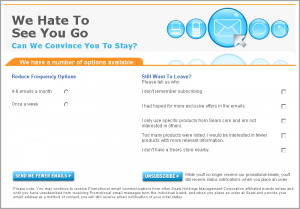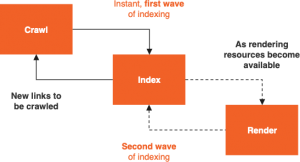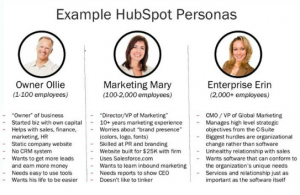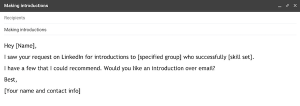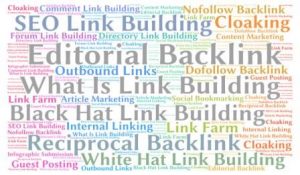— July 1, 2019

rawpixel / Pixabay
One of the biggest hurdles that a small business owner faces is a lack of working capital. Between the money needed for overhead, payroll, and all other costs associated with running a business, they may lack funds for improvements, renovations, or covering emergency expenses.
For the vast majority of small businesses, this is where a loan comes in.
Using debt to finance your business needs is a common tactic—much more common than relying on venture capital, for example—though it’s always a risky proposition. You need to crunch the numbers and make sure you’ll have the revenue to pay off your loan on time.
There are many loan products on the market today, available through both traditional lenders like banks and newer, online lenders. Although you could divide these loans into many different categories, a helpful distinction is understanding whether the loan is secured, unsecured, or self-secured.
Let’s review the three different kinds of loans and see which might be best for you.
What are secured loans?
The basic definition of a secured loan is that it’s a loan that is backed by collateral, typically an asset like real estate, personal cash, equipment, or blanket liens. The collateral “secures” the loan and gives the lender an assurance that you plan on repaying your loan—or risk losing your asset.
The vast majority of business loan products—term loans, lines of credit, and so on—are secured loans. Securing your loan with collateral may give you more favorable lending terms (a lower interest rate, longer repayment term length), or may convince a lender to extend you financing at all (in case you have poor credit or an up-and-down borrowing history).
Often, the collateral is something that your business owns. Using business collateral to secure your loan prevents you from being personally liable for repaying the loan—although, of course, your business will still be.
In some cases, such as for SBA loans, you may need to offer a personal guarantee alongside or instead of physical collateral. This guarantee will make you personally liable for repayment, meaning the lender can seize your personal assets if you default.
The only way in which secured loans limit you is that the lender may choose to extend you a certain amount of financing based on the value of your collateral.
What are unsecured loans?
In some cases, you may come across loan products that don’t require you to put up collateral in exchange for access to capital. These are unsecured loans.
The most common type of unsecured loan is a business credit card. Think about it: The credit card company offers you many thousands of dollars in credit without asking you to put up your business’ assets.
There are other loan products out there that don’t require collateral in the traditional sense, including certain business lines of credit or business loans. In the reverse of what we saw above, these loans will either have higher-than-normal interest rates (as a way for the lender to hedge their risk), or will only be available to businesses with excellent business credit history.
Keep in mind that unsecured loans don’t mean “loans with no liability.” Unsecured loans may still require that you sign a personal guarantee, and banks or lenders can still pursue repayment of their debt in the event that you default.
In fact, unsecured loans allow lenders or third parties to pursue any number of your assets in their quest to be repaid. While secured loans allow you to decide which of your assets will be collateralized, unsecured loans tell lenders that any of your assets, personal or otherwise, are up for grabs.
In some cases, you won’t have valuable-enough assets to secure your loan, and an unsecured loan is your sole option. This doesn’t make it a bad loan, but it does make for a riskier endeavor.
What are self-secured loans?
Some types of business loans don’t require the business owner to put up collateral, because the loan is “self-secured.”
In these loans, the asset that you are purchasing, or borrowing against, acts as the collateral itself.
For example, equipment financing is when you obtain the funds to purchase a new piece of equipment (a vehicle, heavy machinery, etc). In this case, the piece of equipment acts as collateral—if you default, the lender will seize the equipment, and while you’ll be back at square one, you won’t lose any other assets in the process.
The same goes for invoice financing, where you borrow money against an outstanding invoice from a late-paying client, or inventory financing, where you borrow the money to purchase a large amount of inventory. In each case, the lender can pursue the invoice or inventory in question if need be.
These forms of financing are both fairly affordable—because the collateral is built into the loan, the interest rates are on the lower side—and responsible (because if you default, the other core assets of your business aren’t at risk).
The downside is that they are limited in scope, because they require you to have a certain financing need (e.g. a new piece of equipment, or a cash flow gap caused by a slow client). But if you need an easy way to build business credit with low risk, self-secured loans are a great option.
Which loan type is best for my small business?
In a sense, the question of whether to choose a secured, unsecured, or self-secured business loan is more about what assets you have at your disposal, and what your needs are, than your personal preference.
Do you have valuable assets that will serve as collateral for your loan? Would you prefer to have lower interest rates and more generous repayment terms? A secured loan is your best bet.
Do you have financing needs that far outpace the value of your assets, and don’t mind paying higher interest rates to get the deal done? You can go with an unsecured loan—provided you qualify for one.
And finally, do you need a specific piece of equipment or amount of inventory? A self-secured loan is likely the way to go to avoid opening you and your business up to liability.
In all cases, your mindset should be the same: Whatever collateral you put up, or don’t put up, to secure your loan shouldn’t matter, in the sense that your goal must be to repay your loan on time. Make your loan payments, use your funding responsibly, and the question of liability and collateral seizure won’t even enter the equation.
Business & Finance Articles on Business 2 Community
(50)



